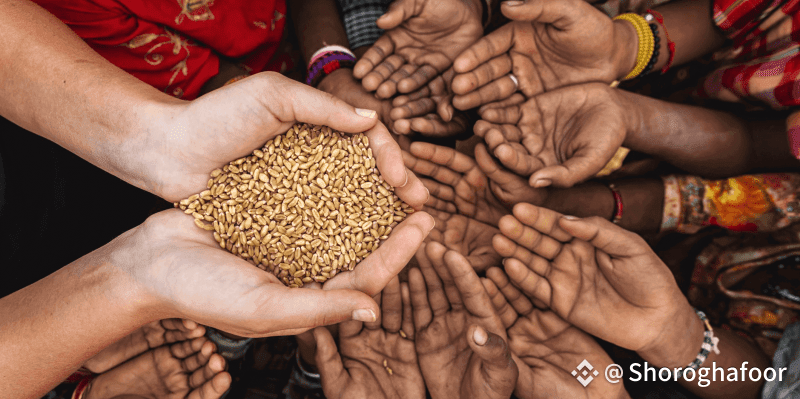 Despite producing enough food to feed every person on the planet, our world faces a staggering hunger crisis. In 2024, a devastating 673 million people—more than 8% of the global population—went hungry. This isn't just a number; it's a crisis fueled by conflict, climate change, and economic instability that leaves communities shattered and futures uncertain.
Despite producing enough food to feed every person on the planet, our world faces a staggering hunger crisis. In 2024, a devastating 673 million people—more than 8% of the global population—went hungry. This isn't just a number; it's a crisis fueled by conflict, climate change, and economic instability that leaves communities shattered and futures uncertain.
The numbers are alarming:
* Nearly 2.3 billion people experienced moderate or severe food insecurity, meaning they lacked consistent access to enough nutritious food.
* Over 295 million people in 53 countries suffered from acute hunger. In places like Gaza, Sudan, and Haiti, the situation is catastrophic, with 1.9 million facing starvation.
* The crisis is worst in Africa, where one in five people—more than double the global average—is hungry. Sub-Saharan Africa and South Asia are epicenters of undernourishment and child malnutrition.
The Drivers of Despair
This crisis isn't accidental. It's a direct result of systemic issues that disproportionately affect the most vulnerable.
* Conflict is the primary cause. It drives 70% of acute hunger, displacing families, destroying crops, and cutting off access to essential resources.
* Climate change is a relentless threat. Extreme weather events like droughts and floods are devastating agricultural communities, turning arable land into dust and washing away harvests.
* Economic inequality creates a divide where healthy diets are a luxury. In low-income countries, a staggering 71.5% of people can't afford a nutritious meal, compared to just 6.3% in high-income nations.
These factors create a vicious cycle. They hit women and girls the hardest, as they often face higher rates of food insecurity and malnutrition. The UN’s goal of achieving Zero Hunger by 2030 is currently off-track, with projections showing that 582 million people will still be undernourished.
How We Can Make a Difference
The good news is that we have the power to change this. We can fight back against hunger by focusing on transformative solutions.
* Support Sustainable Agriculture: Investing in resilient farming practices helps communities withstand climate shocks and ensures a stable food supply.
* Address Systemic Inequity: We must tackle the root causes of hunger, from gender inequality to climate vulnerability, to build a more just and food-secure world.
* Increase Humanitarian Aid: Organizations like the World Food Programme face a critical funding gap. Your support can provide immediate relief to those on the brink of starvation.
Every action, no matter how small, contributes to a larger movement. By raising awareness and supporting organizations on the front lines, we can turn the tide on this global crisis.